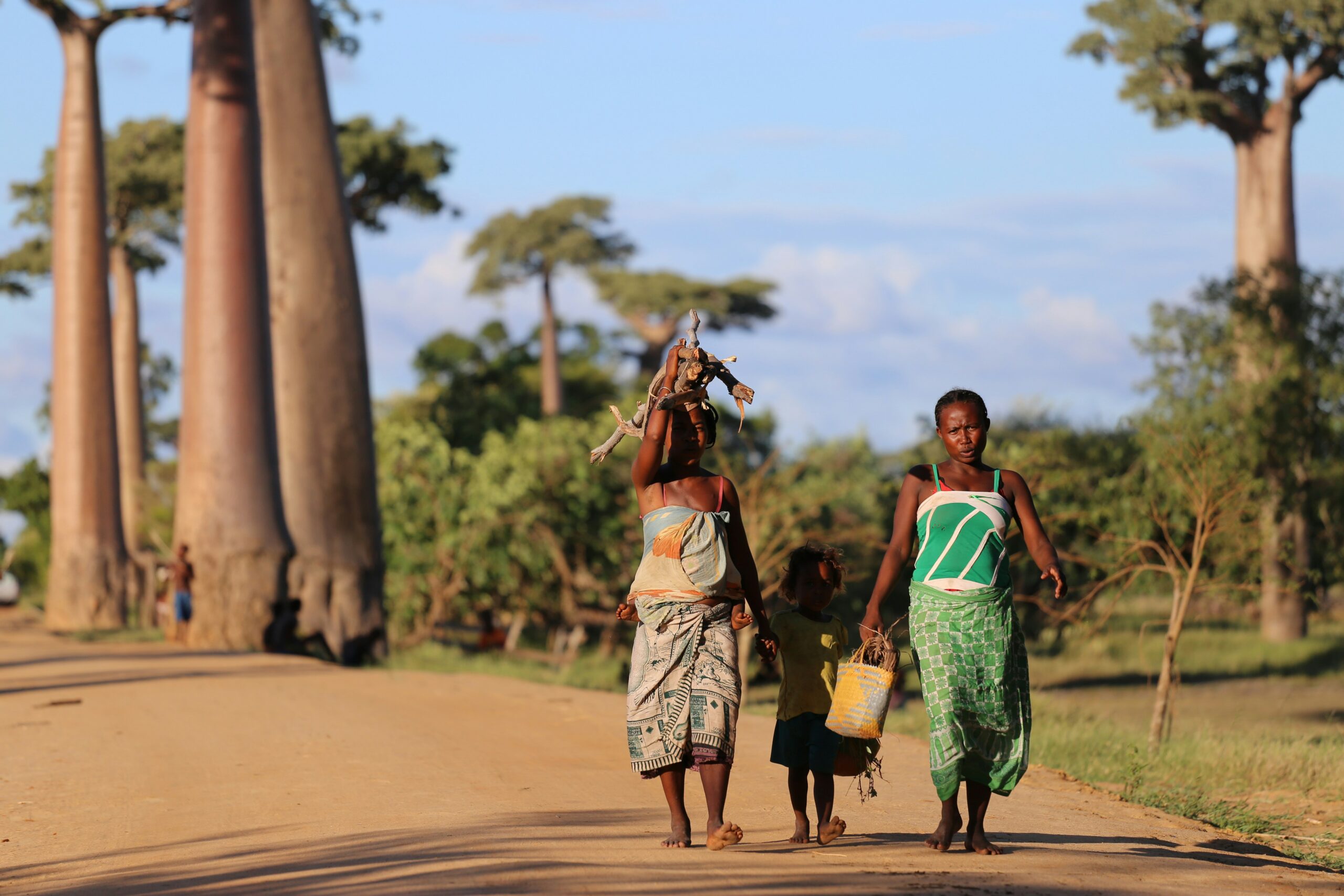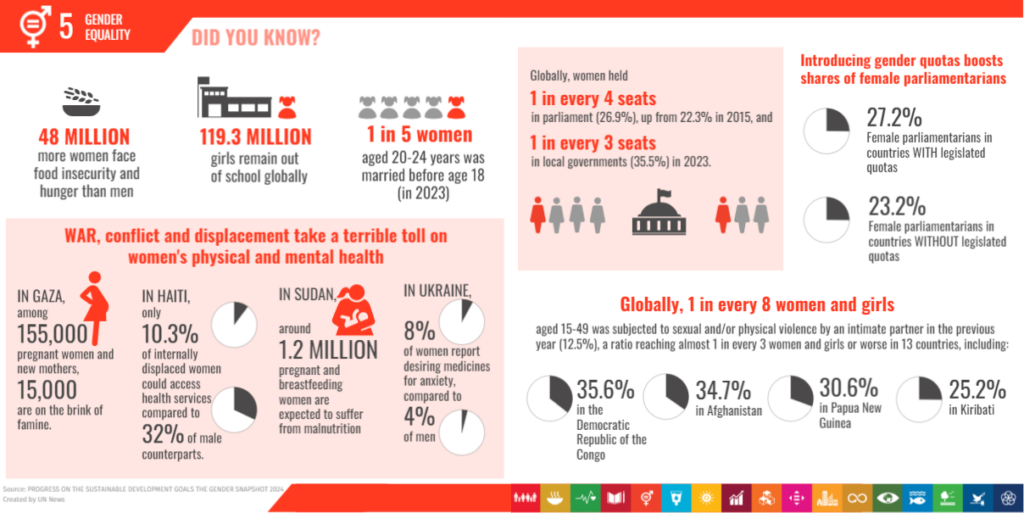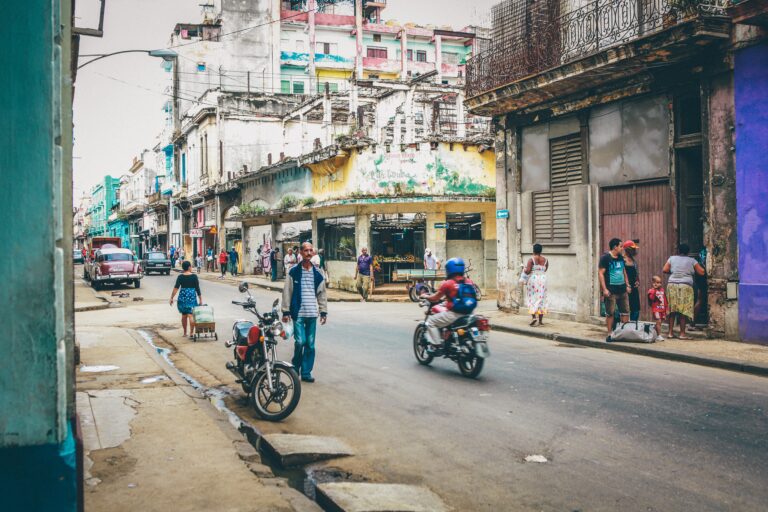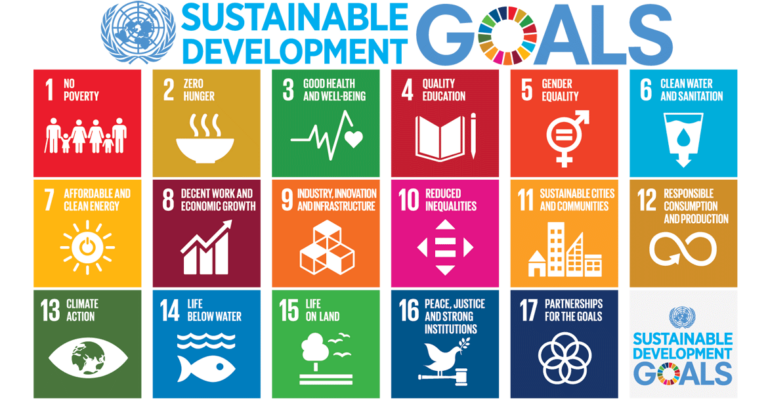
Gender Snapshot Report 2024: Journey to Gender Equality too slow
The United Nations (UN) has released its updated Gender Snapshot Report for 2024 and the headline is that, while some progress has been made, change is happening far too slowly.
The Gender Snapshot Report is an annual look at the progress made towards gender equality within the framework of the 17 Sustainable Development Goals (SDGs). The SDGs are a global blueprint for a better future, addressing pressing challenges like poverty, inequality and climate change. SDG 5 specifically focusses on Gender Equality – but not a single indicator under this goal has been achieved.

Limited progress
The UN Gender Snapshot Report 2024 sheds light on the journey towards gender equality. While there have been notable improvements, the pace of change remains slow and significant challenges persist.
Women in Parliament: A decade ago, women held far fewer parliamentary seats. Today, they occupy one in every four seats, marking a significant step forward. However, achieving gender parity in parliaments worldwide might still take until 2063 at the current rate.
Today’s report reveals the undeniable truth: progress is achievable, but is not fast enough. We need to keep pushing forward for gender equality to fulfill the commitment made by world leaders in the Fourth World Conference on Women held in Beijing almost 30 years ago and the 2030 Agenda. Let us unite to continue dismantling the barriers women and girls face and forge a future where gender equality is not just an aspiration but a reality.”
Sima Bahous, UN Women Executive Director
Extreme Poverty: The proportion of women and girls living in extreme poverty has finally dipped below 10 per cent, a welcome decline after the sharp increases seen during the COVID-19 pandemic. Yet, the path to completely eradicating poverty for women and girls could span another 137 years.
Child Marriage: Despite global efforts, about one in four girls are still married before they turn 18. This statistic underscores the urgent need for continued advocacy and intervention.
There is also a monumental cost associated with this inequality, as explained by UN News:
…the annual global cost of countries failing to adequately educate their young populations is over USD 10 trillion. Low- and middle-income countries can lose another USD 500 billion in the next five years by not closing the digital gender gap.”
The report also highlights the necessity for legal reforms and strategic investments to ensure women and girls can participate fully and equally in all aspects of society. These measures are crucial to closing the gender gap and fostering a more inclusive world.
Conclusion
It’s all too common that these annual reports detail faltering progress and disappointing development. As the Summit of the Future kicks off this week, its significance is underscored by the findings of the UN Gender Snapshot Report 2024, with global leaders looking to forge a new international consensus on delivering a better present and safeguarding the future.
Population Matters will be in attendance at the Summit to make our voice heard. We will be hosting an event on Friday, 20 September, which you can attend virtually here.
_________________________________________________
The Gender Snapshot Report is published by UN Women and the UN Department of Economic and Social Affairs.



